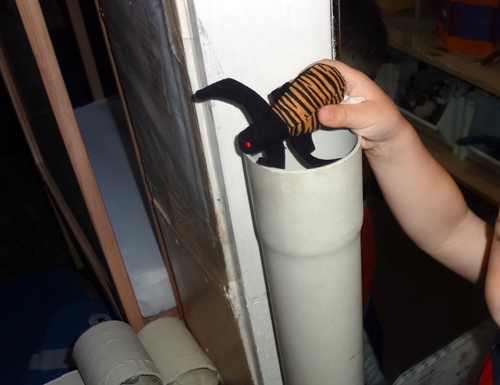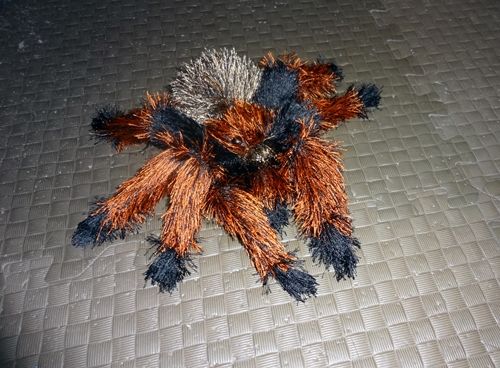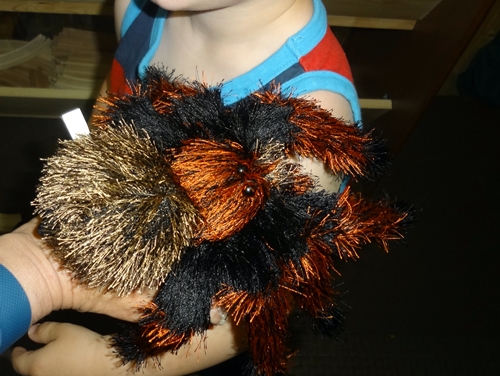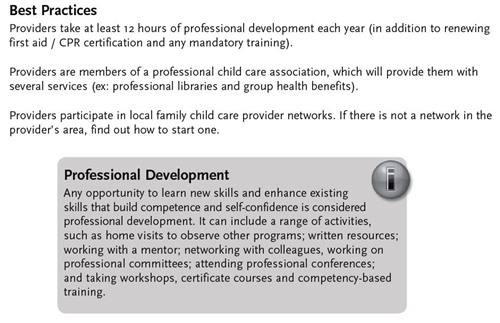Spring is always the peak insect love season – I assume because they are rarely seen over winter and so they are ‘new and exciting’ when they emerge in abundance in the spring. Of course I always encourage it further by bringing out the insect toys and puppets too. One of the toddlers was repeatedly dropping this little stuffed spider through the tube – as they like to do with all small toys.

I didn’t think much about it until I heard him very quietly singing the Itsy Bitsy Spider song too
Admittedly there are some creepy crawlies that I am not particularly fond of because of the damage they do to our garden yet I am careful not to instill in the children any fear or hatred towards even the ‘bad’ bugs. It is simply another learning opportunity – we may not want them in our garden but we can find appropriate ways to coexist. We also include bugs in our many discussions about ‘bullies’ – great big humans picking on little bitty bugs usually because they don’t understand their purpose.
Many children are fearful of spiders – I believe this is a learned fear – one that I spend a lot of time discussing with the children. With every fear, like or dislike I always ask the children ‘why’. I’ll admit that I have often been startled by spiders – they are speedy little critters, but startled by and afraid of are two entirely different things. Spiders are good – they are very welcome in my garden and even in my house.
I noticed that the youngest of the toddlers seemed to be afraid of my very favourite spider puppet – never touching it and always giving it a wide berth if someone else left it on the floor.

What was even more interesting was how quickly the other two toddlers – who had previously liked this toy – now picked up on this ‘fear’. Upon arrival each of them would timidly survey the playroom to ensure they knew the spider’s location so they didn’t come across it unexpectedly.
So, for several days I carried and played with the spider puppet. I talked about how cute I thought he was – how much I liked his little beady eyes and his fluffy hair. Then even the timid children took turns talking to and petting the spider puppet. Soon the spider’s fan club got bigger and several of the children ‘begged’ to have the spider walk up their arm and tickle their neck.

Loving or hating things that are ‘different’ begins with something as small as a spider. It is important to understand why we don’t like something or someone – is it the color, texture, or something else? What are some appropriate ways to address those fears or dislikes? Should you build walls and avoid contact or spend some time learning to understand and accept the differences and the benefits. You don’t have to love them but what can you do before the fear becomes hate.
Hope this year we are lucky enough to find some more cat faced spiders in the yard – they are my favourite ‘real’ spiders. I don’t enjoy the sensation of having any insect crawl on me but that is not their fault and I can still enjoy the benefits of having them around.


